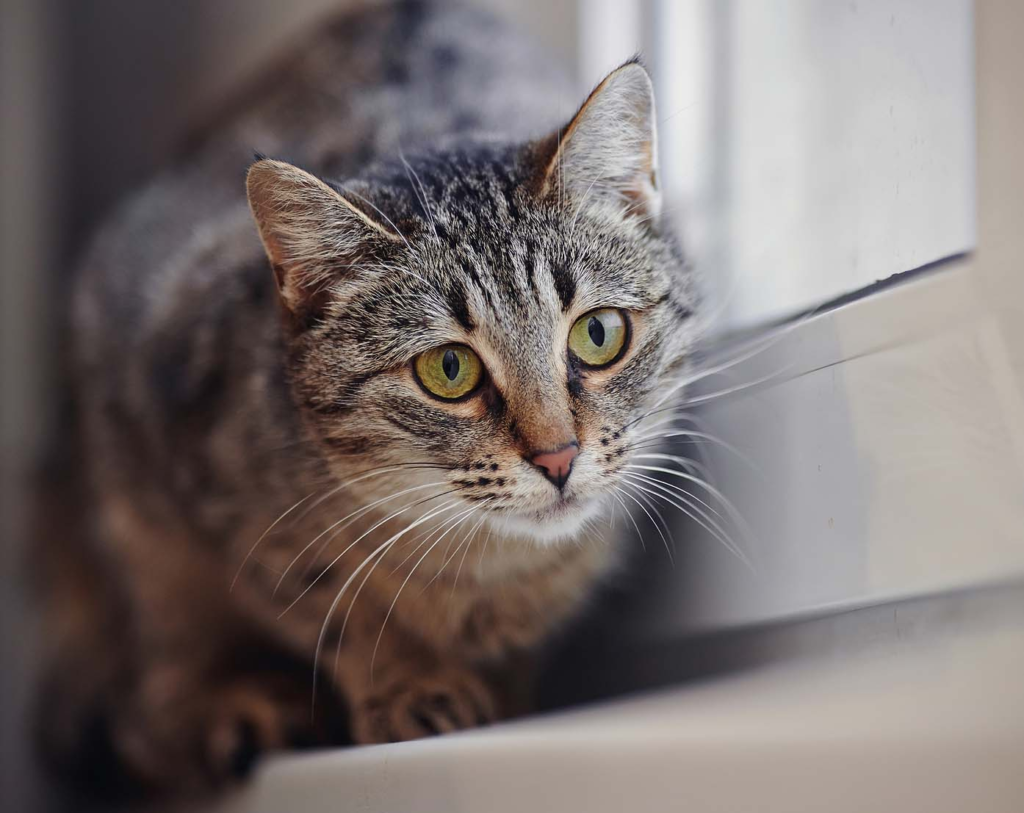Last Updated on August 15, 2023 by Fumipets
Here Are Some Clues to How Long Your Cat Might Live
Understanding the potential lifespan of a cat involves considering various factors that influence its longevity. While individual cat lifespans can vary widely, certain clues and factors can give cat owners insights into how long their feline companion might live.
These factors include breed, genetics, diet, lifestyle, veterinary care, and environment. By taking these clues into account, cat owners can make informed choices to help ensure their cat leads a healthy and fulfilling life.
You may be familiar with Creme Puff. She lived to a ripe old age of just over 38 years in Texas, making her the oldest cat ever, according to the Guinness Book of World Records. In August 2005, she passed away. More recently, the British cat Rubble passed dead in July 2020 after living for 31 years.
While these cats may have broken all sorts of records for lifespan, you may be left wondering how long your cat could live as a result of them.
How Long Do Cats Live?
According to Jessica Watson, the Cat World team lead at the Best Friends Animal Society sanctuary, a cat typically lives between 10 and 20 years.
According to Watson, frequent veterinarian care is a critical component of your cat’s long and healthy life. Prior to an emergency, make sure you have a veterinarian and see them.
Routine examinations and vaccinations enable your veterinarian to immediately detect any changes in your cat’s medical history and help your cat live a long life by recognizing any diseases early, according to the expert.
You may create a diet strategy tailored to your cat’s requirements with the assistance of your veterinarian. The kind and quantity of food that is optimal for your cat depends on its age, breed, and level of activity. As your cat matures, your veterinarian can help you determine when it may be appropriate to switch his diet.

Lifespans of Indoor vs. Outdoor Cats
The environment in which a cat spends most of its time affects how long they live.
According to Watson, indoor cats—those that live only within your home—have a life expectancy that is about double that of outdoor cats. Even though they are exposed to diseases, parasites, predators, and automobiles that their indoor counterparts avoid, outdoor cats nonetheless have active lives.
The typical lifetime of indoor cats is between 10 and 15 years, according to the UC Davis School of Veterinary Medicine. It might be as short as 2 to 5 years for outdoor cats.
Cats who live inside but sometimes go outside enjoy the best of both worlds, but they still face the same hazards as cats that spend most of their time outside—just less often.
Indoor-outdoor cats are more prone to abscesses (from bites) and illnesses that may be spread by parasites they will come into contact with outside, according to Watson. Regular examinations and monthly topicals for flea/tick control, combined with ensuring sure your animals are current on their vaccinations, will help battle them.
She adds that in certain instances, cats that have been spayed or neutered may live longer than cats that have not. Unaltered cats may be more susceptible to illnesses of the reproductive system and STDs.
Cats’ Life Stages
According to Watson, cats have six life stages:
Kitten (birth to six months old)
Junior (six months to 2 years old)
Adult (3–6 years old)
Mature (7–10 years old)
Senior (10–14 years old)
Geriatric (15 years or older)

A cat matures the most throughout the first 24 months of his existence. Most people believe that a 2-year-old cat is physically mature at the same age as a 24-year-old person. After that, for every year a cat gets older, you may add around 4 years to your own age.
Therefore, a 3-year-old cat is equivalent to a 28-year-old human, etc. A cat that lives to be 20 years old is the age of a person who is 96 years old.
In addition to the regular veterinary checkups, Watson advises keeping a careful watch on your cat’s behavior throughout those life stages. Small changes, such as a sudden lack of enthusiasm for playing, might point to a health problem. Cats may be challenging since they might exhibit little to no symptoms of illness, according to Watson.
She continues by saying that the front desk employees at the majority of veterinary clinics can typically let you know if what you’re seeing calls for a visit to the vet (and how serious the problem is). Don’t be afraid to ask the office for guidance on any behavioral changes you see.
Do cats possess nine lives then? No, they only have one life left to live, maybe with you! Additionally, you may lengthen that period of time by making sure your cat receives regular veterinary treatment, a healthy diet, and other lifestyle decisions that promote their health and welfare.
Questions and Answers:
What are some clues that can indicate a cat’s potential lifespan?
Clues include breed, genetics, diet, lifestyle, veterinary care, and the overall environment in which the cat lives.
How does a cat’s breed influence its lifespan?
Different cat breeds can have varying average lifespans due to genetic predispositions to certain health conditions.
What role does genetics play in a cat’s lifespan?
Genetics influence a cat’s susceptibility to certain diseases and conditions that can impact its lifespan.
How does diet affect a cat’s longevity?
A balanced and nutritious diet can contribute to a cat’s overall health and lifespan. Feeding appropriate food throughout their life stages is crucial.
Can a cat’s lifestyle impact its lifespan?
Yes, an active and mentally stimulated lifestyle that includes play and exercise can contribute to a cat’s longevity.


















